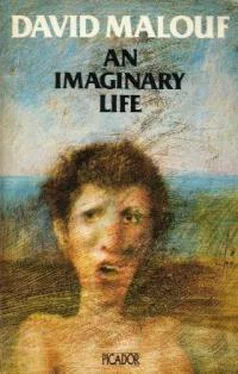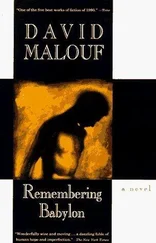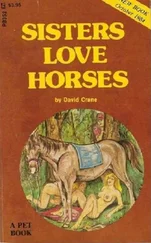David Malouf - An Imaginary Life
Здесь есть возможность читать онлайн «David Malouf - An Imaginary Life» весь текст электронной книги совершенно бесплатно (целиком полную версию без сокращений). В некоторых случаях можно слушать аудио, скачать через торрент в формате fb2 и присутствует краткое содержание. Жанр: Проза, на английском языке. Описание произведения, (предисловие) а так же отзывы посетителей доступны на портале библиотеки ЛибКат.
- Название:An Imaginary Life
- Автор:
- Жанр:
- Год:неизвестен
- ISBN:нет данных
- Рейтинг книги:5 / 5. Голосов: 1
-
Избранное:Добавить в избранное
- Отзывы:
-
Ваша оценка:
- 100
- 1
- 2
- 3
- 4
- 5
An Imaginary Life: краткое содержание, описание и аннотация
Предлагаем к чтению аннотацию, описание, краткое содержание или предисловие (зависит от того, что написал сам автор книги «An Imaginary Life»). Если вы не нашли необходимую информацию о книге — напишите в комментариях, мы постараемся отыскать её.
An Imaginary Life — читать онлайн бесплатно полную книгу (весь текст) целиком
Ниже представлен текст книги, разбитый по страницам. Система сохранения места последней прочитанной страницы, позволяет с удобством читать онлайн бесплатно книгу «An Imaginary Life», без необходимости каждый раз заново искать на чём Вы остановились. Поставьте закладку, и сможете в любой момент перейти на страницу, на которой закончили чтение.
Интервал:
Закладка:
He has been here now for nearly two weeks. After those first three days when he slept, when his soul tried to bury itself in the earth, and these last days when he has lived in a state of half-sleep, he has begun to move again into wakefulness, into the full alertness of his youth. Yesterday, while I was out of the room briefly, he must have touched my writing materials. The ink was spilled. I sopped it up without giving any indication that I knew he had been tampering with things; refilled the pot; found my place in the roll. And almost burst out laughing to see that his tongue was blue.
Being out of the room again today, I stood just beyond the door frame and watched.
He shuffles across the floor towards the parchment roll and stares at it, pokes at it with his forefinger, then lowers his head and sniffs. How it must puzzle him that the roll still smells of animal hide. Once again the ink fascinates him. He sniffs at that also, but is careful not to spill it. He takes the stylus in his hand, and has been observant enough to grasp it clumsily, but correctly, between thumb and forefinger. He looks pleased with himself. He dips it in the ink, finding great difficulty in getting the pen, balanced as it is between his fingers, into the hole. He crouches over the pot, and there is on his face that look of utterly human concentration that one sees on the faces of small children when they are trying for the first time to draw, or make strokes for writing or thread a needle - the eyes fixed, the tongue pointed at the corner of the mouth and moving with each gesture of the hand, as if it too were one of the limbs we have to use as men, one of our means of pushing out into the world, of moving and changing its objects. Is that perhaps where speech begins? In that need of the tongue to be active in the world, like a hand among objects, grasping, pushing, shaping, remaking? Watching behind the door these first attempts of the Child to handle the objects of his new world, I find my eyes wet with tears. There is something in our humanity, in the slow initiation of the creatures of our kind into all that we have discovered and made - in ourselves and in the world around us - that is always touching like this; one feels it in the first efforts of the child to push itself upright, to push that one step up that must have taken our ancestors centuries to imagine and dream of and find limbs for; or in the first precarious placing of one block upon another to make a little tower, the beginnings of a city. All those ages of slow discovery. Relived by the child in just a few months, as he makes use of experience he can never himself have had, and which must lie latent in him, in the lives under his own of thousands long dead, whose consciousness he has somehow brought with him into the world. How much more moving then to see my Child make the discoveries that will lead him, after so many years of exile, into his inheritance, into the society of his own kind.
I have for several days now left his hands free. At last, this morning, I untie all his bonds. They are no longer necessary. All that will tie him to us, to a new life, is invisibly there, he must feel it: the web of feeling that is this room, the strings -curiosity, a need to find out the usefulness to him of all these objects that surround him, and the way they define him and illuminate the uses of his own body - these are the threads that hold him now, and along which his mind must travel to discover how he is connected to us, to the bowl, to the water scoop and bucket, the sponge I use to wash him, and which he has already begun to use himself, the ink pot, stylus and parchment, the colored ball I have placed casually where his eye cannot miss it, and which, since I never touch it, he must already have realized is his. I feel his mind moving out towards these things. I feel, even in darkness, the invisible twitching of strings. For some reason, in these long hours of sitting with the Child, watching him move slowly out of himself, trying to imagine myself into his skin so that I will discover how it is I must lead him into his lost childhood. I have found myself more and more often slipping back into my own childhood - also lost until now, or rejected; certainly long forgotten. I fall into some timeless place in myself where the past suddenly reoccurs in all its fullness, or is still in progress. I am there again. I make contact with a self so surprising that I can scarcely believe it is me. I touch again on an experience that I recognize as mine only because its vividness can only be that of live lived in recall. Imagination could not present to the mind, to the senses, anything so poignantly real.
Of course all men put their childhood behind them. It is part of discovering a new self in manhood. But i have done so more than other men, I think. The simplicity of those early years at Sulmo fitted so ill with my new role as man about town, as sophisticated poet of the metropolis, that I should have felt only anxiety and some sense of disgust if I had tried to reconcile the two. For the same reason I found it painful to see my father, who remained disappointed in me - even after my literary reputation might have been enough to make up to him a little for my failure to become a man of affairs. He married again and had another family. And that too made it easy for me to keep away. I lived, after the end of my second marriage, as if I had sprung into the world complete with my first book of poems, an entirely new type, the creature of my own impudent views and with no family behind me, no tribe, no country, no past of any kind. And now it all comes back to me.
Especially, and with feelings of extraordinary tenderness such as I have not known for so long now that I cannot recall the last time they can have swept over me, certain evenings from my earliest childhood when we were turned over, my brother and I, to the women of the household, the farm servants, to be washed and dressed for bed, along with their own children, boys and girls, both, who are of an age with us and are still at this time (since we have not yet learned to distinguish them as slaves) our playfellows in the farmyard and in the olive groves and orchards beyond.
In the big stone-flagged kitchen under the beams there are tubs of warm water and suds, and we children, perhaps a dozen or more, are splashing about together or paddling in pools on the floor, all shrieking and starting away wherever one of the women, their arms already holding the big fluffy white towels, reaches out and makes a grab for us. It is, to me, a scene of golden beauty and cleanliness. I feel my whole spirit washed at the thought of it: the clean naked bodies, the white towels, the women laughing and holding out their bare white arms. In these harvest days we are allowed to sleep out in the farmhouse with our nurse. My mother, who is sickly, and whose head aches with hay fever, has retired to her room and never appears. My father goes out each morning with the harvesters, and if the work is far off on the other side of the valley, he will stay out with the laborers overnight. We are put to bed, with the others, on huge straw mattresses behind the kitchen, and lie awake while the women tell us stories about wood spirits and demons older than the Roman gods, who live in odd corners of the house and barn and must be placated with lumps of dough (which they come for in the guise of a mouse) or with herbs that only the oldest and wisest of the women know how to gather, high up in the hills.
This is a woman’s world, which I will never know again. It smells of soapsuds and dough, of curds, of the raw wool I watch the older women carding on a terrace wall in the sun, with the fields behind them a glitter of wings. Early in the morning, almost before it is light, we go out together in a party, women and children, to the water meadows, to gather big orange-yellow mushrooms. I watch the women, who are barefoot, haul their skirts up in the dew while they squat to piss, their heads upright under the straw panniers, and later, on their way home, look on scandalized when, in the stubbled field, they stop and make mocking obeisance to the scarlet-stained figures of Priapus that are set in the midst of the wheat to scare off birds. Back in the yard, there are eggs to gather from under the hens in their wooden houses. There are pigs to feed. There is grain to be winnowed by shaking it in the air in a basketwork sieve. In the coolness of the kitchen, late in the afternoon, there are millet cakes to bake and to prick afterwards with a straw so that they will soak up honey. And then, after dark, the bathing. I watch again as one of the girls, her skirt hitched up over her bare legs, her arms gleaming wet, takes my brother by the prick and leads him round the tub like a goose, while all the women throw their heads back and laugh, and the children splash and clap their hands and toss suds in the air. And I realize suddenly, nearly fifty years after the event, that this must be the girl my father is sleeping with. I see her lead my brother, the little heir to all this world, round the sopping kitchen floor while the women show their gapped teeth and hold their sides and laugh. It is a vision of utter joyfulness; and I am at the center of it, understanding, for the last time perhaps, a little of its mystery. It is another world. How strange to find myself back there for odd moments, knowing that I have made nothing of whatever it was that was being revealed to me then - that I went some other way, into a manґs world, into the city, into the state, as my brother too went another way, to death. But stranger still is that all this time it has remained there, untouched, unrecalled, but still brightly new - and so real that I smell the raw cleanness of it still.
Читать дальшеИнтервал:
Закладка:
Похожие книги на «An Imaginary Life»
Представляем Вашему вниманию похожие книги на «An Imaginary Life» списком для выбора. Мы отобрали схожую по названию и смыслу литературу в надежде предоставить читателям больше вариантов отыскать новые, интересные, ещё непрочитанные произведения.
Обсуждение, отзывы о книге «An Imaginary Life» и просто собственные мнения читателей. Оставьте ваши комментарии, напишите, что Вы думаете о произведении, его смысле или главных героях. Укажите что конкретно понравилось, а что нет, и почему Вы так считаете.












